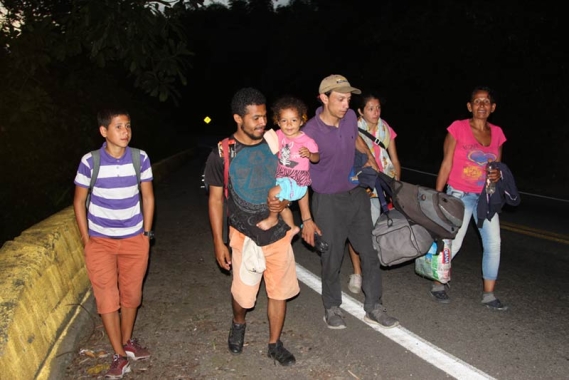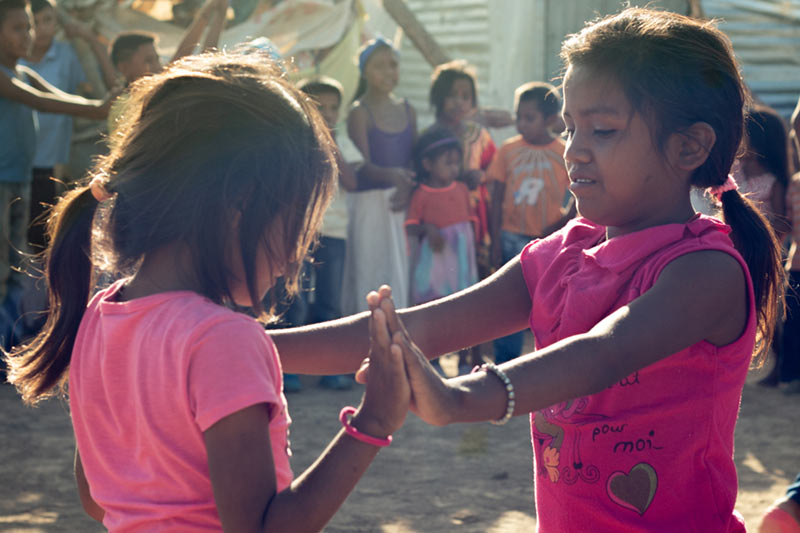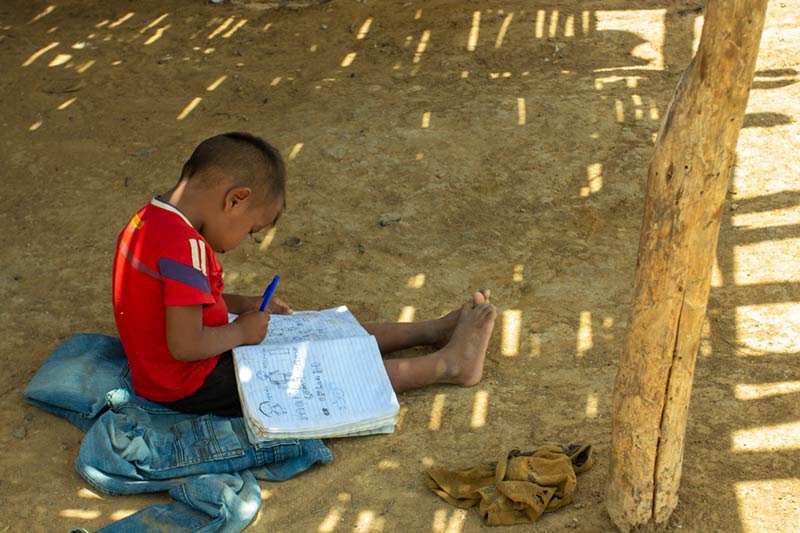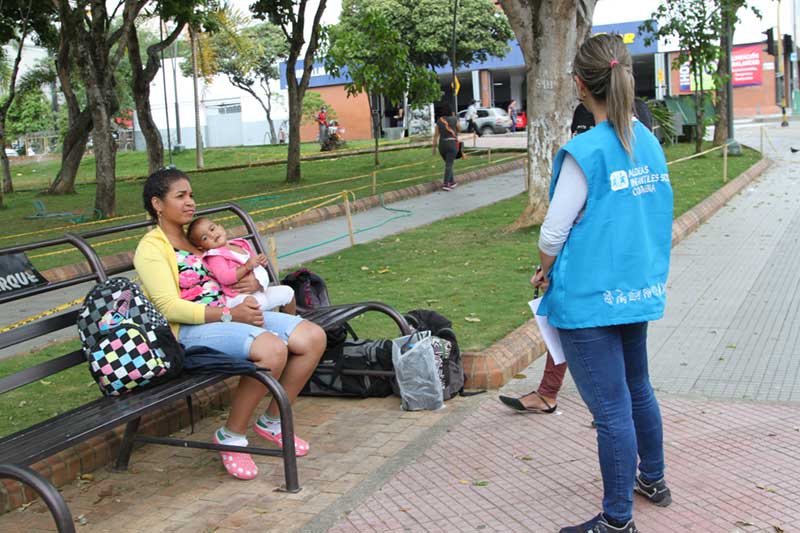Need for Care Grows as Venezuelan Displacement Continues

The situation in Venezuela remains uncertain as growing poverty, political instability and insecurity has meant more and more families are struggling to feed their children and buy basic goods.
An estimated 2.3 million people have left Venezuela over the past three years, according to the United Nations. Colombia is home to more than 1 million Venezuelans, while upwards of 70,000 people have crossed into Brazil’s northern Roraima state over the past year. Children who have been displaced face the risk of abuse, abandonment and exploitation, as more Venezuelans leave for neighbouring countries. SOS Children’s Villages has launched emergency programs in Brazil and Colombia to help displaced Venezuelan children and families.
In the following interview, Ms. Flores, International Director of the Latin American and Caribbean Region of SOS Children’s Villages International, talks about the impact of the Venezuela situation in the region and points to risks for children that include separation, abuse, trauma and lack of educational opportunity.
What are the main risks to children in this situation?
Many families are now trapped at the border because neighbouring countries are no longer allowing people to cross. There are large numbers of people living in unhealthy and crowded living conditions.
In these situations, children are at risk of sexual, physical and psychological abuse. They also are at risk of being exploited and forced in labour. Children have dropped out of school or have no access to education and, if this goes on long enough, they may not return to their studies.
Another major concern we have is that parents are leaving their children behind – sometimes abandoned, sometimes left with relatives – so they can find ways to support themselves in other countries. Sometimes the people who are taking care of the children are themselves no longer able to support them. Children may leave to try to find their parents, and they are stuck at the border or unable to find their parents. They are in a very difficult situation and exposed to the risks I mentioned above as well as to the psychological consequences of separation. The children who are left behind or move to another country are also at a risk of losing their identity and their sense of belonging.

The situation must be very desperate if parents are choosing to leave their children behind.
The situation is desperate. People do not have enough food for their families. Some have left everything they had because the situation became unbearable.
It has been difficult to get statistics on the true need and in some cases the host countries have not provided special programs to address the emergency. So this makes the challenge of providing support even greater. In other refugee situations, you may have biometric registration and more formalised shelters. But in this situation, many people have two passports and, until recently, could easily cross the borders. It is much more difficult to organise humanitarian response or to monitor the needs of children and families in this kind of situation.
UN reports suggest that the number of Venezuelans leaving their country continues to grow. Are the host countries equipped for this kind of emergency?
With the increase of people crossing borders, the access to basic serves is one of the consequences. All of these countries have limited resources and were are already seeing problems in some host communities with xenophobia. Some of these countries do not recognise the severity of the situation and they are not providing emergency services. But with the increase of people crossing borders, the access to basic serves increasingly will be affected.
You mentioned that one of the risks is the lack of access to education. Are host communities making provisions so these children can attend school?
Most education systems in Latin American countries ensure access to primary education. So in general, these children should not have problems getting into school. But in reality, there are also problems because in many cases the schools require that children have a certificate from their previous school. If you don’t have the certificate or a birth certificate, some schools will not accept the children. Others will make an exception, but my guess is that in many cases parents will have trouble getting their children into schools.

What should be the priorities when it comes to helping children in the host countries?
Most of the existing relief programs are providing some humanitarian assistance – food, health and shelter. But there are not enough mental health programmes to care for the children in these situations. They are exposed to traumatic events and need mental health support. These problems are harder to detect and require specialised care because the impact of this kind of situation is long-term. In many refugee and displacement emergencies like this, we tend to forget the mental health and psychological consequences. We must address the immediate needs, like food, health care and shelter, but we also must be prepared to address the mental health needs.
Our programs in Brazil and Colombia at the moment are focusing on efforts to strengthen families and prevent family separation. This is the core work of SOS Children’s Villages – we have the skills the staff trained to do that.
In Brazil and Colombia we have alliances with some UN partner agencies. Through these alliances we are able to operate, though not to the extent that we were hoping or that even begins to address the need because the numbers are so large. For the moment we are focusing on the border areas where most of the people are concentrated.
Are we also helping in Venezuela?
We are providing family strengthening and some foster care in the state of Zulia, near the border with Colombia. We are trying to help the families and extended families stay together, so the children can remain with their loved ones.

--
SOS Children's Villages' mission during an emergency is to ensure that children are protected from abuse, neglect, exploitation and are generally kept safe.
The SOS Mayday Emergency Relief fund ensures that there are sufficient funds to respond when these emergencies occur. Donate now and help respond to current and future emergencies.
